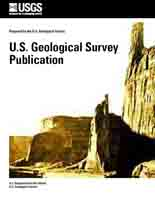Hydrologic data from Nation, Kandik, and Yukon rivers, Yukon-Charley Rivers National Preserve, Alaska
Links
- More information: Publisher Index Page (html)
- Download citation as: RIS | Dublin Core
Abstract
Suggested Citation
Brabets, T.P., 2001, Hydrologic data from Nation, Kandik, and Yukon rivers, Yukon-Charley Rivers National Preserve, Alaska: U.S. Geological Survey Open-File Report 2001-295, 16 p., https://doi.org/10.3133/ofr01295.
ISSN: 2331-1258 (online)
| Publication type | Report |
|---|---|
| Publication Subtype | USGS Numbered Series |
| Title | Hydrologic data from Nation, Kandik, and Yukon rivers, Yukon-Charley Rivers National Preserve, Alaska |
| Series title | Open-File Report |
| Series number | 2001-295 |
| DOI | 10.3133/ofr01295 |
| Year Published | 2001 |
| Language | ENGLISH |
| Description | 16 p. |


